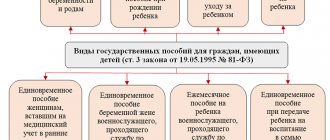Every person at a certain stage of his life is faced with the loss of people close to him and they leave behind property. Registration of inheritance for a house and land after the death of parents has its own distinctive features.
This is due to the fact that in the legal relationship under consideration there are two subjects - a capital structure and the site on which it is located. For each of them, you will need to provide the notary with a separate package of documents.
The article will explain all the subtleties and nuances of inheriting country buildings. Recommendations for an accelerated solution to this issue are presented.
What should an heir know when registering a house after the death of his parents?
Let us define the basic concepts that are encountered when initiating the process under consideration.
The inheritance of a deceased person (mother, father) is all real and movable property that belonged to him during his lifetime.
Real estate is apartments, land, buildings.
Everything else - money, vehicles, securities, products of intellectual or copyright work belong to the second group.
In accordance with Art. 1111 of the Civil Code of the Russian Federation, inheritance is accepted in two versions:
- in law;
- on the basis of a will.
Therefore, the inheritance of the house after the death of the mother in accordance with Art. 1152 of the Civil Code of the Russian Federation is adopted both on both grounds simultaneously, and on any of them separately.
The first thing you need to do is obtain a certificate from the registry office confirming the death of a parent and only then declare your rights to the property.
Transfer of a land plot from a deceased citizen to his heirs on the basis of Art. 1118 of the Civil Code of the Russian Federation, occurs, as in the case of home ownership, on general principles, without restrictions or additional permits.
Within six months after the death of their parents, children are required to present their rights to their property (Article 1154 of the Civil Code of the Russian Federation).
Acceptance of inheritance on several grounds simultaneously
According to the general rules provided for by current legislation, it is possible to accept an inheritance simultaneously on several grounds:
- by will;
- in law;
- in the order of hereditary transmission;
- as a result of the opening of an inheritance;
- etc.
Important!
Acceptance of inheritance under conditions or with reservations is not allowed.
The choice of accepting an inheritance due to the heir on one of the grounds, on several of them, or on all grounds belongs to the heir himself.
What are the ways to inherit a house and land?
There must be a legal basis for this. Current legislation defines the following methods: contact a notary and write a statement or by filing a claim in court.
The optimal solution to the issue would, of course, be the first option. In the second case, contacting the competent authority is usually necessary when there are disputes between heirs and the six-month period has been missed.
Another way of registering property, through the court, occurs when the property is actually accepted. But we'll talk about this a little later.
Legally
The entire process is initiated on the basis of blood ties to the deceased. All relatives are divided into 8 groups.
The first stage, which has an advantage over the rest, includes:
- surviving spouse;
- children;
- parents.
It is they who, after the death of the mother, along with the living father, will be called upon to inherit in the first place (Article 1141 of the Civil Code of the Russian Federation).
All other groups of citizens who are more distantly related cannot, in such a situation, claim the property of the deceased if her children or grandchildren are alive.
If there are two children, for example, a son and a daughter, then all the property of the deceased parent is divided between them in equal shares.
In case of disputes, the law allows for the possibility of negotiations on this issue.
Legal successors can distribute the inheritance among themselves by concluding a written agreement, which is certified by a notary office.
If there is a will
In the text of this document, one of the parents can designate the circle of heirs among whom his property will be divided.
By law, a father or mother can designate in a will only personal property received after the death of relatives, as a gift, or acquired before the start of family life. This also includes half of the property acquired jointly during marriage (Article 256 of the Civil Code of the Russian Federation).
An important aspect of making a will is its validity - it must be certified and properly executed.
Parents usually do not make wills for their children unless there are other heirs or persons who can lay claim to their property.
This usually happens when other relatives live in the household. Or the parents remarried and do not want the property to go to their second spouse.
In accordance with the document, the property will be divided between the citizens designated in it in the shares determined by the deceased father or mother. Unless specifically described in the text of the will, the building and land will continue in equal shares among the assignees.
Let us pay attention to an important nuance: when inheriting by law and will, it is necessary to take into account the rights of the so-called obligatory heirs, if they exist.
This category includes:
- Dependents who have been in care for at least a year.
- Disabled spouse and parents.
- Minors and disabled children.
In accordance with Art. 1149 of the Civil Code of the Russian Federation, these persons have the right to claim 50% of the share that was due by law. Therefore, regardless of what is stated in the will, if there are “mandatory heirs,” then the children will share the mother’s property with them.
Actual acceptance and trial
This concept means the actual ownership and management of the parent’s property after his death (Article 1153 of the Civil Code of the Russian Federation).
This means that the inheritance of the house after the death of the father passes to the children who lived in the same living space with him on the basis of certain actions that they took.
Such actions include:
- security and repair of housing construction;
- payment of utilities and current payments for the house and land;
- voluntary payment of debts and loans.
If a mother or father dies, then the children, as first-degree heirs, actually take ownership of the building and land where they lived with them.
However, citizens will not be able to dispose of this property: sell, exchange, donate until they re-register the property with the registration authorities.
With this option, you will need to go to a notary to obtain a certificate of inheritance. Or you can file a lawsuit in court, which will make a decision allowing you to inherit this property. This document actually legally replaces a notarial certificate.
Controversial situations
In some cases, in the process of re-registration of land plots and houses, nuances and controversial situations arise related to the lack of any documents, violation of deadlines, etc. Let’s consider the most common cases.
What to do when there are no papers?
It happens that a potential heir does not have title documents. This does not mean that he should give up his rights. In any case, you should contact a notary, who has the right to request any documents to identify the heir.
Ownership rights that were not registered at the time of the testator’s death can be proven in court. For this purpose, a statement of claim is written, provided for such cases.
There is no will
Some citizens think that the lack of a will left by the deceased is a problem. In fact, for such situations, the legislation provides for the order of relatives.
If there is no will for a house, land, etc., then the inheritance is distributed among those who come first. If there are none, heirs from the 2nd stage are considered, etc.
Cost and timing of the procedure
Registration of land with house construction by contacting a notary can take a long time.
If you turn to a professional lawyer for help, he will carry out the entire procedure as quickly as possible, taking into account his experience and connections in various authorities.
If this issue is resolved through the court, the situation may drag on and range from 2 to 6 months. Therefore, it is better to choose the first method.
When performing the described procedure, children will incur certain expenses - it will be necessary to pay a state fee to a notary for issuing a certificate of inheritance.
For first-degree relatives (children) you will need to pay 0.3% of the value of the inherited estate, but not more than 100 thousand rubles.
There is an additional small fee for technical work. The amount of this payment is set independently by a specific official in each city or town.
Prices in Moscow and St. Petersburg will be higher than in other regions. If we indicate the cost of the services of a professional lawyer who will formalize everything through the appropriate authorities, then his remuneration can range from 8 to 10 thousand rubles.
Why was an inheritance agreement invented and how does it differ from a will?
It is no secret that after the opening of an inheritance, conflicts often occur in families. For example, the owner bequeathed an apartment to one son, and a car to another. At the same time, he also wanted his son to live in the apartment with his mother, and at the first request, the car would be given free of charge for transportation to his beloved nephew and his family, i.e. everything remained “as usual.”
The heirs may not have known about such conditions, or they knew, but did not want to fulfill them, since the requests were not recorded and this cannot be done in wills. In order for the will of the testator to be carried out, inheritance agreements were created.
An important difference between an inheritance agreement and a will is that the latter is a unilateral act. Unlike a will, an inheritance agreement is concluded by the testator and the heir. This allows the rights and obligations of the parties to be agreed upon in advance.
Procedure and instructions for registering an inheritance for a house and land
At first glance, it seems that this is a complex and costly procedure. A person will spend most of his energy collecting documents for the building and the land on which it is located.
The whole process consists of several stages, the first of which is contacting a notary. This is followed by the collection and provision of a number of mandatory certificates and certificates.
You need to be prepared for the fact that some of them will have to be obtained from the competent authorities after a certain amount of time has passed. It is important that they are drawn up correctly and reflect the real picture of the inherited property.
Equally important! Before you begin registering an inheritance for a house and land, you should understand under what conditions the land was given to the deceased relative. It could be listed on it as private property, or as a lease with different periods of use and ownership.
Action 1. Contact a notary
It occurs at the place of registration of the deceased parent or where most of his property is located.
If the children are in another city, it is possible to send your application by mail to the locality where the inheritance case is opened, having previously notarized it (Article 1153 of the Civil Code of the Russian Federation).
You will need to provide a list of general mandatory documents indicating the right of inheritance.
These include:
- parent's death certificate;
- ID of the deceased;
- the applicant's civil passport;
- documents indicating relationship with the deceased;
- a will, if available, or a certified copy thereof.
Then you need to write a statement of title to the house and land in your own hand. In addition, you will need to pay 300 rubles. From this moment the inheritance case is opened.
Over a period of six months, a search is carried out for all legal successors and the amount of acquired property that belonged to the deceased parent is established. If the notary knows exactly this information, the certificate of inheritance can be issued within 6 months.
Action 2. Collection of documents
First of all, it is necessary to establish on what basis the land was transferred to the deceased. If it is from state ownership, you must obtain the appropriate certificate from the state archives.
If the process of land transfer took place on the basis of transactions, donation agreements, exchange, purchase and sale, a cadastral passport from the BTI will be required.
Required documents
| On house | To the ground |
| Registration certificate | Certificates of title |
| Certificate of estimated value from the BTI | Certificate of absence of encumbrances |
| A certificate stating that the object has not been seized or is not collateral. | Cadastral certificate of appraised value |
| Certificates of title | |
| Extract from the Unified State Register of Real Estate | A certificate stating that there are no debts to the state. |
| Certificate stating that there are no debts on utility bills |
Technical and title certificates are provided in originals, but it is recommended to attach copies of them.
It is possible that the notary may require additional documents to those listed above. This is only possible in specific cases.
Action 3. Obtain a certificate of inheritance for a house with land
First of all, the official carefully checks the authenticity of the entire package of submitted certificates, extracts, and passports.
Only after this can we talk about the onset of the final stage of the case, when a certificate of inheritance for the house and land plot by the legal successors of the deceased father or mother.
As mentioned above, this happens after six months or, in exceptional cases, earlier. Before handing it over, the notary will issue the account details where the state fee will need to be paid. Its size will depend on the estimated value of the site and the building.
Disabled people and combatants have benefits when paying fees. As soon as the certificate of inheritance is in hand, the final stage of the transfer of real estate and land to the new owner begins.
Action 4. Registration of ownership
This is a mandatory procedure that is regulated by law. It involves recording the transfer of ownership from a deceased person to his children. Without this step it is impossible to complete the entire process.
To implement it, you need to contact the Registration Chamber at your place of residence, where you write a corresponding application.
Along with it, you must provide:
- certificate obtained from a notary;
- title documents;
- receipt of payment of state duty;
- passport.
The authorized person in the Registration Chamber accepts this entire package and issues a receipt to the applicant, according to which he will receive an extract from the Unified State Register on the designated day. After its completion, the new owner has the right to fully dispose of the land and housing construction.
Valuation of property for transfer of ownership
Real estate prices are unstable. To complete the process of obtaining the right to the property of the testator, it is necessary to provide documents indicating the value of the object not at the time of its acquisition, but at the time of the death of the owner.
To do this, you need to contact any organization that carries out an official assessment of real estate. Based on the document received, the state fee will be calculated, which the heir is obliged to pay.
In rare cases, notaries do not request an appraisal certificate and, when calculating the state duty, rely on the inventory value indicated in the registration certificate.
The cost of a plot or house is influenced by the technical characteristics of the object, location, presence of certain infrastructure, etc.
What to do if you didn’t have time to contact a notary on time
Sometimes citizens miss the six-month deadline during which they must present their rights to the property of deceased relatives. Various reasons may contribute to this.
The law indicates that if the period for accepting the property of the deceased has expired, it can only be restored through a judicial procedure.
To do this, you will need to draw up a statement of claim and provide:
- Evidence indicating family ties with the deceased.
- Original will, if available.
- Written evidence indicating a missed deadline.
An important point in this matter will be the nature of the obstacles that prevented the son or daughter from arriving on time. They must have a valid motive, or due to force majeure.
Other circumstances are also taken into account:
- being on a long business trip abroad;
- serious illness;
- serving a sentence in penitentiary institutions;
- being under investigation in a pre-trial detention center.
Note! Heirs can go to court for another reason - if their rights are violated by a notary or third parties. This number includes scammers in the real estate market.
How to sell inherited property?
Having received an inheritance, its new owner has the right to dispose of the property at his own discretion. He can settle in a house or apartment, cultivate the land, rent out what he receives, or sell it all because he is no longer needed or needs to get money.
If a decision is made to immediately sell the property, the new owner will have to pay tax during the process of re-registration. In order not to pay it, you need to wait 3 years, which is calculated from the date of death of the former owner.








